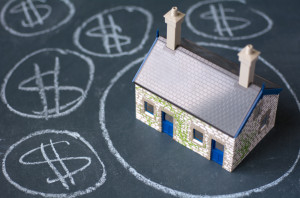Loophole allows schools districts to raise property taxes in Pennsylvania

School districts in PA are raising property taxes to cover rising cost of pensions.
By Maura Pennington | Watchdog.org
PHILADELPHIA — One in three school districts in Pennsylvania is raising property taxes without the consent of residents, thanks to a loophole in a state law meant to relieve the burden of rising education costs.
In 2006, the General Assembly passed the Taxpayer Relief Act, also known as Act 1, in which the state Department of Education sets an inflation index to create a cap on each of Pennsylvania’s 500 school districts and their ability to increase property tax rates in a given year. If school districts need to go above it, the increase is supposed to be put before voters.
That idea, however, has been scuttled by a program through which districts can receive voter referendum exceptions.
To get around the tax cap imposed by Act 1, school districts can apply and qualify for an exception from the PDE in the instances of excessive special education costs, grandfathered debt from school construction, and retirement contributions.
For the coming school year, 316 school districts adopted resolutions promising not to increase tax rates above the allowable index, while 164 were granted exceptions.
Of the 164 school districts that were granted exceptions, 163 applied because of pension obligations.
“School districts have been able to raise property taxes at will to pay for the pension spike,” said David Baldinger, spokesman for the Pennsylvania Coalition of Taxpayers Association and coordinator of Pennsylvania Taxpayers Cyber Coalition.
Pennridge School District is 30 miles north of Philadelphia in Bucks County. It has a student population of 7,300 and employs about 500 teachers and 450 additional staff. The district applied for an exception to the total of $1.1 million just to cover rising pension costs. That translates to a tax increase of 3.6 percent.
A homeowner in that district with a house assessed at the median value of $30,430 would have to pay $3,912 in property taxes, or $105 more than last year.
The Pennridge School Board was looking into using money from its fund balance to decrease that by $33.
Even so, residents of that district will have to pay more next year to cover retirement costs for public employees.
According to the Pennsylvania Independent Fiscal Office, which released a report in October 2013, the growth of school property taxes has been steadily exceeding the growth of wages since the early 1990s.
Since 1993, school property taxes have increased by 146 percent. The Pennsylvania average weekly wage has increased by 80 percent during that same period.
“It’s going to get to the point where homeowners cannot pay the property taxes,” Baldinger said.
Contact Maura Pennington at mpennington@watchdog.org and follow her on Twitter @whatsthefracas.







